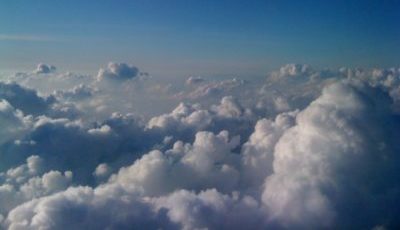
But isn’t all that dreaming exhausting? We’ll soon find out.
An abundant dream harvest
When I mention how many dreams I remember each morning (3-5 is not unusual and my dream reports can run up to 2,000 words) people often ask me if all that dreaming makes me tired.
I quickly answer that no, my high level of dream recall doesn’t interfere with getting a good night’s sleep. To back up my claim, I’ve polled other prolific dreamers and they say they’re energized, not exhausted, by their abundant dream harvest.
But the fact is, I’m chronically tired. I’ve always assumed this is a result of the hectic pace of my waking life and not the seeming hyperactivity of my dreaming brain.For better or worse, I will now have the chance to find out once and for all whether all this dreaming is wearing me out. Later this month I’ll be going in for a sleep study to see if I have any sleep-related disorders that are causing my fatigue—and perhaps also contributing to my unusual level of dream recall.
Time to study the situation
Here’s what happened: Like many women my age, I’ve become more forgetful than I was a few years back. My friends reassure me that having a tough time remembering the names of actors or where I put my keys simply comes with the territory of getting older. But my mother has Alzheimer’s disease, which has made me hyper-vigilant about my own memory, and I wanted a professional’s opinion. So, I made an appointment with a neurologist, and after a seemingly endless battery of tests the results were in. My brain functioning was deemed normal, with no signs of early Alzheimer’s or dementia. This news allowed me to breathe a sigh of relief—but I still wasn’t satisfied that the difficulties I’ve been having with memory are purely a result of getting older.
“Well,” the doctor asked, “how have you been sleeping?”
When I mentioned my vivid, and abundant dreams, along with the fact that I’m told that I talk in my sleep and snore lightly, the doctor raised the idea of a sleep study to rule out a mild case of sleep apnea or narcolepsy.
“A sleep study!” My eyes lit up as if I’d been told the answer to my woes was a trip to the Bahamas and my health insurance would cover the cost. I realize that for most people having sensors stuck to their head, face, and legs, and then going to sleep in a strange setting is not particularly appealing. But for a dream therapist like myself, this sounds like an exciting adventure. After all, anything that helps me understand sleep and dreams better, not to mention how my sleeping brain works, is my idea of a good time.
A difficult choice
“How will you feel,” the doctor asked, “if we find out that the remedy for your problems means you stop having all those dreams?”
I thought about this for a moment. It sounded like that O’Henry story where the woman sells her hair to buy her lover a watch fob for Christmas, and he sells his watch to buy her beautiful combs for her hair. What if the best thing about sleeping gets taken away from me so I can get a better night’s rest?
“I’ll manage,” I told the doctor. For one thing, I can’t be greedy; I’ve already had more than enough dreams for a lifetime. And besides, I could always fine-tune the art of Shamanic journeying in order to enter dream space in another way.
In the meantime, I’m looking forward to finding out what sleep science can tell me about my dreaming brain.
Stay tuned for the results …
***
To read the next installment in this 5-part series, click here.
https://thirdhousemoon.com/intake-what-a-sleep-study-reveals-about-how-medicine-devalues-dreams/
I had a sleep study recently — with a take-home kit the size of my kindergarten Porky Pig lunchbox.No strange setting, no great drama! Diagnosis: mild sleep apnea; treatment pending, I’ll be curious about your results and any consequent change in dreamlife. I shall stay tuned!
Hi Joy … yes, do let me know what you learn from your sleep study! Since we are both avid lucid dreamers, I’ll be especially curious to compare notes.